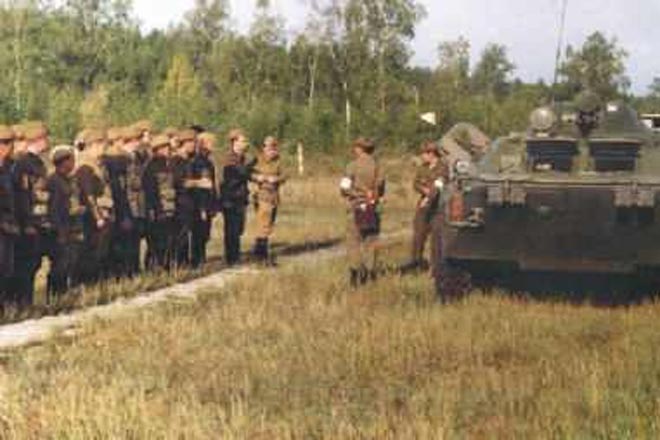Azerbaijan, Baku, Aug. 27 / Trend , V.Zhavoronkova/
Uzbekistan's removal from the Collective Security Treaty Organization (CSTO) is connected with the country's dissatisfaction with the Russian policy in the region, experts say.
The first stage of the exercises of the CSTO rapid reaction force (RRF) on the topic of the "Training and use of the collective rapid reaction forces and troops of the CSTO countries' Armed Forces to ensure collective security" started in Moscow.
Uzbekistan, despite the membership of the CSTO, refused to participate in these exercises.
This step of Uzbekistan is completely predictable, experts believe.
Tashkent's refusal to participate in the CSTO exercises, including its first stage, designated to improve military and political aspects of the interaction forces and security forces, was expected, a European expert on Central Asia, Yuriy Fedorov believes.
"In recent months, Karimov has repeatedly demonstrated a negative attitude toward the CSTO and the collective peacekeeping forces, Research Fellow on the Russia and Eurasia Program of the Chatham House Royal Institute of International Affairs, Fedorov wrote to Trend in an email.
In addition, after the military actions in Georgia in August last year, according to an expert on Central Asia, Neil Macfarlane, many CIS states have been "carefully distancing" themselves from Russia.
Uzbekistan's refusal to attend the exercise is also due to "its position on participation in the CRRF structures," says Russian Expert on CIS and Central Asia, Leonid Gusev.
Only five countries of the CSTO, including Russia, Armenia, Tajikistan, Kyrgyzstan and Kazakhstan signed an agreement to establish the CRRF in the organization's summit in June and Uzbekistan, as well as Belarus, have not approved the paper.
Tashkent put forward a number of conditions that restricted the opportunities of the CRRF, believes Gusev, Senior Research Fellow at the Institute of International Studies of the Russian Foreign Ministry's Moscow State Institute of the International Relations.
For example, Uzbekistan proposed not to use the Collective Rapid Reaction Force's units in conflicts between members of the bloc, as well as not to send them to other countries if it is contrary to national laws. Moreover, Tashkent also expressed its desire not to participate in the Collective Rapid Reaction Force permanently, but only delegate its units."
Restoring Uzbekistan's participation in the CSTO and signing the Treaty on the allied relations with Russia were a forced reaction to sharply negative attitude of the United States and European states to suppress the riots in Andijan in 2005, said Fedorov.
As soon as the West began to reconsider their approach to Uzbekistan, Tashkent, in turn, became more clearly showing that it is not interested in military cooperation with Russia and, especially, with Kazakhstan, which is considered in Uzbekistan as a rival in the struggle for leadership in the region, the expert said.
The experts believe this can be confirmed with some facts.
Uzbekistan suspended its activity in the Eurasian Economic Community (EurAsEC) in autumn 2008 and refused to participate in projects of the Shanghai Cooperation Organization, Gusev wrote to Trend in an email.
"The fact that Uzbekistan has given the U.S. the opportunity to transport non-military goods to Afghanistan through the Navoi airport is a clear demonstration of the Uzbek leadership's interest in the development of relations with the United States," said Fedorov.
Further, the Uzbek leadership is dissatisfied with the Russian policy in the region.
Tashkent is annoyed by the fact that Moscow did not listen to Uzbekistan's objections regarding the establishment of a military base in Osh, Fedorov said. Memorandum on the possible opening of the Russian base in Kyrgyzstan was signed at the end of the CSTO informal summit in early August.
"Russia's contingent, which is planned to be deployed there, can play an important role in the event of clashes between Uzbeks and Kyrgyz in the area of the Ferghana Valley and disrupt, thus, the possible involvement of the Uzbek forces," said the expert.
Relations between the countries exacerbated with the water problem in the region, which they cannot resolve for many years.
Before flowing into Uzbekistan, the rivers run through Tajikistan and Kyrgyzstan, where they are losing much of their water. Uzbekistan greatly suffers from such a lack of water since its main crop is cotton.
Kyrgyzstan and Tajikistan, lacking electricity, need additional hydropower stations and they expect financial support from Russia. Constructing a power plant may reduce the waterways and hence is very disadvantageous to Uzbekistan.
"Uzbek President Islam Karimov thinks that Uzbekistan has been denied water by Tajikistan and Kyrgyzstan in the last year and a half," Gusev said. "According to the Uzbek authorities, Russia supports Tajikistan and Kyrgyzstan."
Moroever, Tashkent is interested in the Russian investments, primarily in the gas industry, said Fedorov, but it does not see Gazprom's readiness for a real participation in major projects on the scale needed to Uzbekistan.
But even under such a situation, experts doubt the possibility of Uzbekistan's withdrawal from the CSTO.
"But it is not clear to me what the strategic gain for Uzbekistan would be from leaving, and there would be a cost in Uzbek-Russian relations," Research Fellow of the British Chatham House Royal Institute of International Relations, Macfarlane wrote to Trend in an email.
Russia Expert, Gusev believes such a step is not favorable for Uzbekistan because it will lose many in security.
Therefore there is no reason why Uzbekistan may withdraw from the organization under the current circumstances, "said McFarlane.
"So I don't see why Uzbekistan would leave the organization in current circumstances," Macfarlane said.
Do you have any feedback? Contact our journalist at [email protected]






